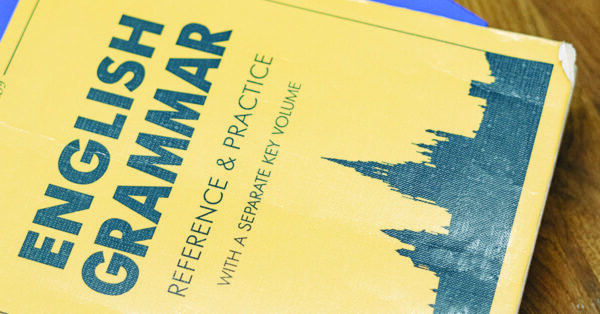10 writing mistakes we make over and over… and over
When it comes to grammar and punctuation, perfection is elusive. No matter how many times you proofread what you’ve written—email, web content, white paper, blogpost, whatever—errors will likely slip in, like gnats through a screen door. Its inevitable.
But there are some miscues that occur over and over—not because of typos, inattentiveness or editing glitches, but because we don’t see them as such. Here are 10 of the most common:
- Downsizing “However.” There are contexts in which “however” needn’t be capitalized. This isn’t one of them: “Private investments are gaining in popularity, however, they’re not for everyone.” Since “however” introduces a new thought, it should begin a new sentence and not follow a comma. Period.
- Ellipses slips. An ellipsis signifies the omission of words from a quote, as in, “Raising interest rates can serve to…cool down an overheating labor market.” When placed within a sentence, an ellipsis consists of three dots, but at the end of a sentence, it gets four—three for the ellipsis itself and one for the period.
- Sending in a hyphen to do an em dash’s work. An em dash is great for embedding a specific fact or idea in a sentence and can often take the place of a colon or comma. But absent an em-dash key, many simply type a hyphen instead. Sorry, but that’s cheating. To create a DIY em dash, hit the hyphen key twice.
- Conflating i.e. & e.g. They’re not interchangeable. “i.e.” is short for “id est”— “that is” or “in other words.” “e.g.” stands for “exempli gratia,” or “for example.”
- Confusing “who” with “that.” “Who” refers to people, as in “I know an advisor who can help you open a retirement account.” “That” applies to things: “I just bought a pen that can write underwater.”
- Disinterested vs. uninterested. If you’re disinterested, you have no skin in the game, as in “The contract must be reviewed by a disinterested third party.” If you’re uninterested, you couldn’t care less: “I am totally uninterested in seeing Instagram pictures of what you had for dinner.”
- Alright isn’t all right. “Already” and “altogether” are standard usages in written English; “alright” isn’t. Don’t ask why. It’s just not.
- It’s “its”, not “it’s.” “It’s” is a contraction for “it is.” “Its” is the possessive form of it. One gets an apostrophe, the other doesn’t.
- Improperly setting up a set-up. Do not hyphenate “set up” when used as a verb: “Darned if I know how to set up this pup tent.” Do hyphenate when used as a noun: “Nice set-up you’ve got here.”
- Between you and me, “between you and I” is incorrect. It may sound right, but it’s dead wrong. Same for “Thanks for joining my friend and I for dinner.” These are examples of what Kenneth G. Wilson, author of The Columbia Guide to Standard American English, calls “hypercorrection”—overcorrecting what sounds like a mistake only to blunder into a real one.
Of course, even when we’re careful to a fault, the quirks and quiddities of grammar can trip us up. In The Merchant of Venice, Shakespeare has Antonio assuring Bassanio that “all debts are cleared between you and I if I might but see you at my death.”
Mistakes happen. In fact, there’s a flub in the first paragraph of this post. We planted it on purpose.




